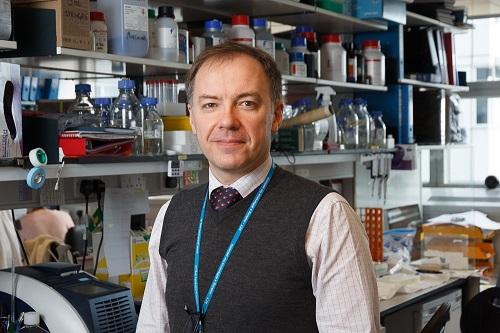NHS England Highly Specialised Services agreed that from today (Wednesday 30 June) Cambridge University Hospitals NHS Foundation Trust (CUH) and Queen Elizabeth University Hospital, Glasgow, should combine forces to become the nation’s only Familial Pneumothorax Rare Disease Collaborative Network.
A pneumothorax occurs when a lung deflates because of an air leak, causing pain and breathlessness. When it occurs in patients with no obvious underlying lung disease it is known as a primary spontaneous pneumothorax (PSP).
PSP has an incidence rate of 20 cases per 100,000 people per year, but in just 10 per cent of these cases, another family member has suffered a pneumothorax, resulting in the rare diagnosis of familial pneumothorax.
Familial pneumothorax can be caused by a variety of inherited syndromes, such as Birt-Hogg-Dubé syndrome, which causes pneumothorax and renal cancer, and several diseases that affect the body's connective tissues, such as Marfan, Loeys-Dietz and vascular Ehlers-Danlos syndromes. However, without a dedicated service only a small minority of these families are diagnosed and receive the correct, personalised, treatments.
Patients will have their case discussed by a team of experts from each centre, providing local teams with guidance around diagnosis and management, which will be delivered locally. If necessary, patients may also be seen at one of the two hospitals, in person or by video link. Heart, lung and genetic testing will be done when needed using the latest technology. The hospitals will direct genetic counselling for those concerned about how their condition may impact on their families.
At Cambridge, the team will be led by director, Stefan Marciniak (pictured) who is professor of respiratory science at the University of Cambridge and honorary consultant respiratory physician at CUH and nearby Royal Papworth.
Professor Marciniak, based at the Cambridge Institute for Medical Research, within CUH, said: “This multi-disciplined team has been working here since 2008 we are delighted that NHS England Highly Specialised Services has recognised the importance of our work.
“Becoming part of a Rare Disease Collaborative Network means we can see patients faster, deliver treatments more quickly and work in partnership with other experts in Glasgow for the benefit of our patients.”
Professor Kevin Blyth, who is Professor of Respiratory Medicine at the University of Glasgow and Honorary Consultant in Respiratory Medicine, agreed. He said: “This is an important development that will allow us to share best practice more effectively and develop a better understanding of how best to support and manage patients with these uncommon but important conditions’
Anyone who wants to learn more about the Cambridge team can visit their web page here.
